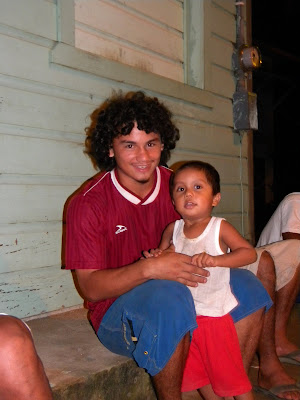
There is no mistaking the bleak realities that social constructs often create in the lives of the impoverished. Although we may not see them each day, the gap between the have and the have-nots is wide and confusing. Recently, I read two books, both describing the plight of the very poorest of two very different societies, rural Honduras and urban New York City.
I came across the first book, Don’t Be Afraid Gringo, while visiting a friend who had set out a pile of free books she would not take with her on her move to Uruguay. I picked it up a few times, but never felt inspired to give it a chance. After reading more than half of the book, a friend here in Roatan took it from my hands and gave me what she considered to be more relaxing reading material. As it turns out, given the stresses I felt each day in my position as the assistant director of a fledgling, alternative school, the ideas portrayed in this book did little to help me to escape and decompress.
The book is based on the first-hand account of a Campesino, or in less politically correct terms, a peasant, in the deep back country of the Honduran mainland. Initially, the detail of the formative years of the political relationship between the U.S and Honduras depicted in the book was very educational. However, as I read on, I couldn’t help but feel my fists tighten around the pages in discomfort at the description of the degradation that seemed, to an outsider, almost self-inflicted in the Campesino community. I know my liberal, revolutionary counterparts are disappointed in this confession, but it is true that in an effort to understand the state of dysfunction as represented in this book, I felt frustration rather than compassion at the plight of the rural Campesino.
In one description, this woman explains that it is customary for girls as young as 12 years old to be taken in the night from her family by a suitor. Her life would most probably continue as a teenage mother, forced to put her children to work at doing anything as soon as they can walk. The description of the male heads of households as drunk, womanizing, abusers, withholding drinking money intended to feed their children, made my jaws clench.
I often wondered as I read, if the brutally primitive social patterns in this community were being accurately portrayed or if the Campesino condition was intentionally criticized by its’ own members in order to justify various international aid programs aimed to empower this community.
Moreover, it became clear that very little progress, from my perspective, has been made in Honduras. As I recently read a book depicting the horrific circumstances of life in the poorest housing projects in the Bronx, I am disgusted, but not surprised. My work in social service in San Francisco brought me into the homes of my clients in low-income housing projects all over the Bay Area. I was familiar with some of those descriptions. But what I find to be most interesting as I compare the two impoverished groups is that the dangerous and humiliating conditions endured by tenants in the Bronx is directly a result of political power shifting and greed and ignorance on the part of the upper classes, whereas the insolvent Campesino communities seem to almost let their own children slip into this decrepit poverty.
While there are similarities to the cruel circumstances both groups of children suffer through, there are far more insurmountable, and uncontrollable hardships created in the Bronx. A few injustices depicted in this book, Amazing Grace, that do not appear on the same scale in Honduras, or in most rural areas, include rat infestation, lead poisoning, AIDS, intravenous drug use, gang and drug violence, malfunctioning elevator shafts, fire hazards, not to mention the facade of any type of functional, effective education. These adversities are often times speculated as intentionally created to cut costs, punish the poor or push them further away from dignified life.
No doubt, I have been supplied with far more opportunity, wealth and freedom than those in the communities I have discussed. I apologize for being critical and lacking compassion in certain instances. The positive message I take from this for our Campesino brethren is that women have far more power than they ascertain or insist upon and it is, hopefully, just a matter of time before the women’s liberation movement sweeps the oppressed in Honduras.

















































